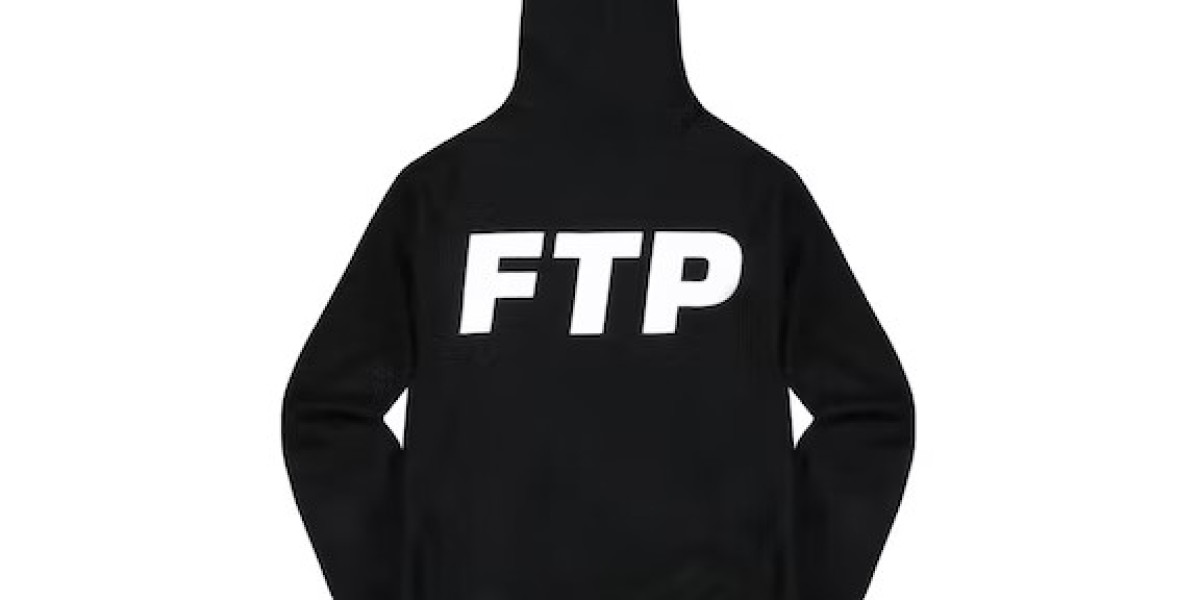Introduction
FTP Clothing, short for “F**k The Population,” is one of the most provocative and raw streetwear brands to emerge in the fashion world over the past decade. Founded in 2010 by Zac Clark, FTP has grown from a rebellious underground label into a cult-followed streetwear powerhouse. With a distinct blend of aggressive messaging, anti-establishment themes, and unapologetic designs, FTP Clothing has carved out a niche that challenges not only fashion norms but also social constructs. This article provides a comprehensive 1000-word overview of FTP Clothing, its history, message, influence, and place in today’s fashion landscape.
The Origins of FTP Clothing
FTP Clothing was founded by Zac Clark when he was just 15 years old in Los Angeles, California. What started as a personal artistic outlet quickly transformed into a full-fledged streetwear brand. The brand’s name — “F**k The Population” — was intentionally shocking and politically charged, reflecting Clark’s frustration with societal systems, media manipulation, and mass control.
From the outset, FTP wasn’t created to conform. It wasn’t designed for mass appeal or mainstream success. Instead, FTP stood as a bold middle finger to conformity, corporate fashion, and even traditional streetwear culture. Clark created FTP for the misfits, the outcasts, and those disillusioned with the world around them.
Aesthetic and Message
FTP’s visual identity is stark, minimal, and highly confrontational. The brand’s frequent use of bold fonts, monochromatic palettes (especially black and white), and controversial slogans has made its aesthetic instantly recognizable. Many of FTP’s designs carry messages that critique government corruption, police brutality, consumerism, and societal hypocrisy.
For example, one of the brand’s popular motifs features a police badge with the words “FTP” replacing the badge number — a clear statement against police violence and systemic oppression. Another common phrase, “Don’t Trust Anyone,” echoes the brand’s anti-authority and anti-mainstream ethos.
Rather than focusing on flashy colors or ornate designs, FTP prioritizes raw authenticity. Its clothing often features blunt text, dark imagery, and symbols of resistance. This honest and aggressive approach has earned it a loyal fanbase that values meaning over mainstream appeal.
Product Range
FTP’s offerings include a variety of streetwear staples such as:
T-shirts
Hoodies
Sweatpants
Jackets
Hats
Accessories
While the clothing itself might appear simple in form, its designs carry weight. Whether it’s a hoodie with an anarchist symbol or a T-shirt with politically charged phrases, FTP pieces are more than garments—they’re statements.
The brand also releases products in limited quantities, enhancing their exclusivity and street appeal. Many items sell out within minutes, creating a hype-driven drop culture similar to Supreme, yet FTP continues to remain less commercial and more underground in nature.
The Drop Culture and Scarcity Model
FTP follows the "drop" model — releasing limited quantities of new merchandise in sporadic intervals. This strategy not only fuels demand but also creates a sense of urgency among consumers. These releases are typically unannounced or teased with minimal marketing, staying true to the brand’s counter-culture roots.
The scarcity of FTP pieces adds to their desirability, especially among collectors and streetwear enthusiasts. While some brands use exclusivity as a business tactic, for FTP, it aligns with their philosophy of staying outside the mainstream fashion machine. https://sp5derhoodie.ltd/
Cultural Influence and Collaborations
FTP has made a significant impact on underground street culture. It has been worn and endorsed by rappers, skaters, and influencers who appreciate its message and style. Notable artists like XXXTentacion, Vince Staples, and Tyler, The Creator have been spotted wearing FTP, lending the brand further credibility and street recognition.
Despite its anti-corporate stance, FTP has done a few collaborations, most notably with Vans and Thrasher Magazine. These partnerships have helped the brand reach broader audiences without diluting its message. However, FTP remains highly selective with whom they collaborate, often declining partnerships that don’t align with their values.
Controversy and Criticism
Given its name and message, FTP has inevitably attracted controversy. The brand’s unapologetic use of profanity, dark themes, and anti-police rhetoric has drawn criticism from conservative groups and even some mainstream fashion voices. However, Clark has remained steadfast in his vision, emphasizing that FTP is not meant to please everyone.
Some critics argue that the brand glamorizes violence or promotes nihilism. Others believe it’s a vital outlet for youth to express frustration in a society filled with injustice. Regardless of the perspective, FTP continues to spark conversation, which in itself is a testament to its cultural impact.
Zac Clark: The Man Behind FTP
Zac Clark is a somewhat elusive figure in fashion. Rarely giving interviews or appearing in public campaigns, Clark prefers to let the brand speak for itself. However, when he does speak, it’s clear that FTP is deeply personal. He has spoken about struggling with depression, growing up in a difficult environment, and using FTP as a form of release and expression.
Clark has also been involved in philanthropic efforts, such as organizing free pop-up shops in low-income areas and distributing clothes to those in need. These actions reveal a more compassionate side to the brand that often goes unnoticed behind its harsh exterior.
FTP’s Place in Modern Streetwear
FTP Clothing occupies a unique space in the fashion ecosystem. It is not just a brand; it’s a cultural movement. While many streetwear companies have shifted towards commercialization and broad appeal, FTP has remained loyal to its roots. It stands for defiance, authenticity, and raw self-expression.
In a world where fashion often trends toward the polished and politically correct, FTP provides a stark contrast. It serves as a voice for the unheard, a symbol for those disillusioned with societal norms, and a canvas for radical artistic expression.
Conclusion
FTP Clothing is more than just edgy designs and controversial slogans — it’s a movement driven by authenticity, rebellion, and raw social commentary. From its underground beginnings to its current cult-like following, FTP has remained unapologetically true to its core values. It doesn’t follow trends, chase influencers, or seek validation. Instead, it creates a space where resistance, anger, and individuality can coexist through fashion.
As streetwear continues to evolve, FTP serves as a reminder that fashion can be both style and substance. It may not be for everyone, and that’s precisely the point. For those who resonate with its message, FTP is not just clothing — it’s armor.













